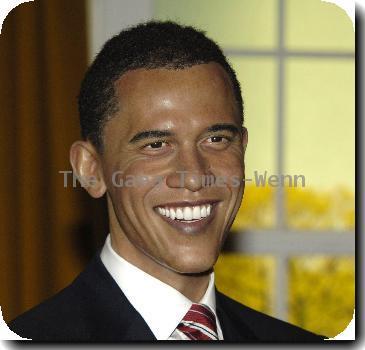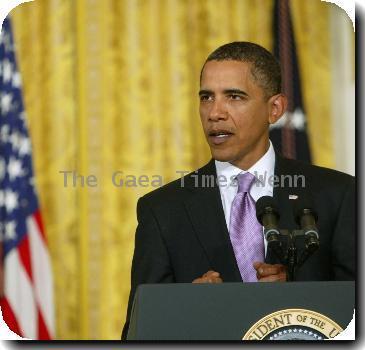High court nominee Kagan’s public record lacks clear signal of how she would vote as justice
By Mark Sherman, APWednesday, May 12, 2010
Supreme Court nominee Kagan has thin ‘paper trail’
WASHINGTON — Elena Kagan’s opposition to the Pentagon’s “don’t ask, don’t tell” policy on gay troops is a rare insight into her personal views. Kagan’s public record, thinner than most earlier Supreme Court nominees, otherwise offers supporters and critics little assurance about how she would vote as a justice.
President Barack Obama nominated Kagan on Monday to replace Justice John Paul Stevens, who will retire this summer. Kagan is expected to vote the same way as Stevens, the leader of the court’s liberals, on most issues. But the assessment of her anticipated votes is based more on her affiliation with two Democratic administrations than on her record.
With the exception of “don’t ask, don’t tell,” which she condemned as a discriminatory “moral outrage,” Kagan has more often been circumspect and cautious about injecting her own views into her public words. She worked in the Clinton White House and the Obama Justice Department, putting forward or defending the administration position. At Harvard Law School, she saw her role as dean as inclusive and generally avoided polemics.
Writing about Kagan’s view of the First Amendment, UCLA law professor Eugene Volokh wrote on his blog, The Volokh Conspiracy, that it’s “hard to predict” from her writings how Kagan would decide cases as a Supreme Court justice.
Volokh praised Kagan’s scholarship, saying her articles “go behind glib generalizations and formalistic distinctions.”
But they are poor predictors because they “are often more analytical…than prescriptive,” Volokh said in a blog post.
In general, her writings and comments over the years provide a little something for everyone.
On presidential power, Kagan has written both in support of the robust use of power and probing judicial review of executive action.
Kagan was the dean at Harvard Law School in 2005 when she and three other law school deans signed a letter opposing a bill that would have prevented civilian courts from reviewing cases of people detained without charge at the naval brig at Guantanamo Bay, Cuba. The measure was proposed by Sen. Lindsey Graham, R-S.C.
“To put this most pointedly were the Graham Amendment to become law, a person suspected of being a member of Al Qaida could be arrested, transferred to Guantanamo, detained indefinitely…subjected to inhumane treatment, tried before a military commission and sentenced to death without any express authorization from Congress and without review by any independent federal court,” they wrote.
They urged lawmakers to avoid endorsing the most aggressive legal tactics in the Bush administration’s fight against terrorism.
“We cannot imagine a more inappropriate moment to remove scrutiny of Executive Branch treatment of noncitizen detainees. We are all aware of serious and disturbing reports of secret overseas prisons, extraordinary renditions, and the abuse of prisoners in Guantanamo, Iraq and Afghanistan,” Kagan and the others said.
Four years later, after Obama nominated her to be solicitor general, Graham asked Kagan her views on detaining terror suspects.
She said terror suspects could be held without trial.
“If our intelligence agencies should capture someone in the Philippines that is suspected of financing al-Qaida worldwide, would you consider that person part of the battlefield?” Graham asked. “Do you agree with that?”
“I do,” Kagan said.
Graham also asked Kagan if she agreed with this proposition: Under the law of war, the government can say, “If you’re part of the enemy force, there is no requirement to let them go back to the war and kill our troops.”
“I think it makes sense, and I think you’re correct that that is the law,” Kagan said.
The two sets of comments are not contradictory, although the Obama administration is seeking to deny detainees in Afghanistan the same ability as those at Guantanamo to file lawsuits in U.S. civilian courts.
Abortion rights groups and abortion opponents both assume Kagan to be in favor of a woman’s right to an abortion, though how strongly is less clear.
In a law review article in 1992, Kagan assessed a Supreme Court ruling that upheld a rule prohibiting recipients of federal funds from counseling women to have an abortion.
“The regulations at issue can hardly be understood except as stemming from government hostility towards some ideas (and their consequences) and government approval of others,” Kagan wrote. She was then a law professor at the University of Chicago.
Five years later, while serving as a White House aide, she recommended that President Bill Clinton support a ban on most late-term abortions, a political compromise that put the administration at odds with abortion rights groups. The compromise eventually failed and Clinton vetoed a stricter bill.
The recommendation was contained in a memo from Kagan and Bruce Reed, her boss in the White House domestic policy office. The memo is on file at Clinton’s presidential library in Little Rock, Ark.
Tags: Barack Obama, Bill Clinton, Caribbean, Cuba, Judicial Appointments And Nominations, Latin America And Caribbean, Law Schools, Military Affairs, Military Legal Affairs, North America, Terrorism, United States, Washington





